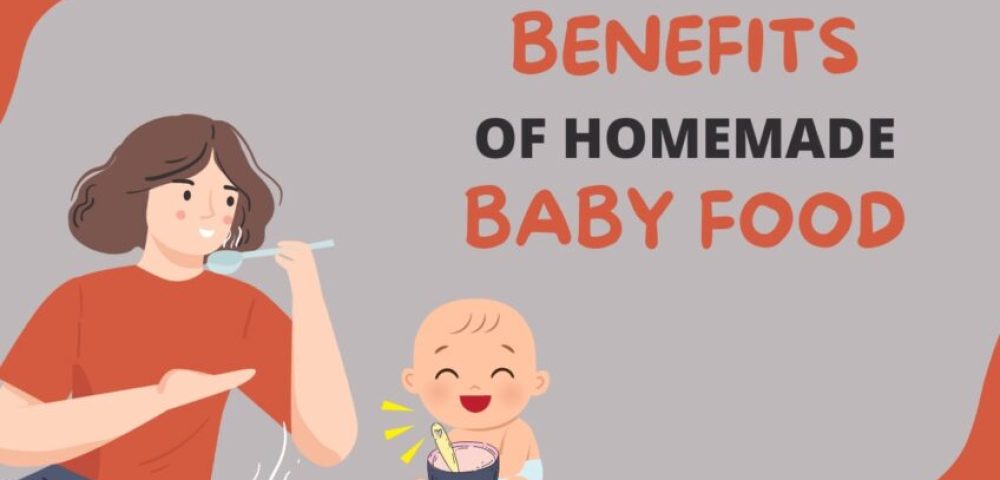With greater demand for fresh ingredients and recipes that are free from additives and preservatives, store-bought options today offer a range of healthy meal options for babies. From fruit smoothies and organic vegetable pouches such as those sold at myserenitykids.com to high-nutrition snacks, parents now have a greater variety of healthy food options to choose from when it comes to meal times.
While store-bought baby options offer convenience, many parents are becoming more conscious of the food they prepare for their children and the nutritional value that it contains, leading them to turn to their own homemade creations in order to satisfy their young ones’ hunger and nutritional needs. If you’re wondering whether homemade baby food is the right option for you, this article has outlined some of the benefits of making your own baby food.
Page Contents
- 1 1. Packed with Nutrition
- 2 2. Enjoy Experimenting
- 3 3. Easy on the Pocket
- 4 4. Culinary Control
- 5 5. Better Digestion
- 6 6. No More Fussy Eaters
- 7 7. Better for the Environment
- 8 FAQ
- 8.1 What are the nutritional benefits of homemade baby food?
- 8.2 How does making it support experimentation and variety?
- 8.3 Is this food cost-effective?
- 8.4 How does homemade baby food offer culinary control?
- 8.5 Can it aid digestion?
- 8.6 How can homemade food help with fussy eaters?
- 8.7 Is homemade baby food better for the environment?
- 9 Final Words
1. Packed with Nutrition
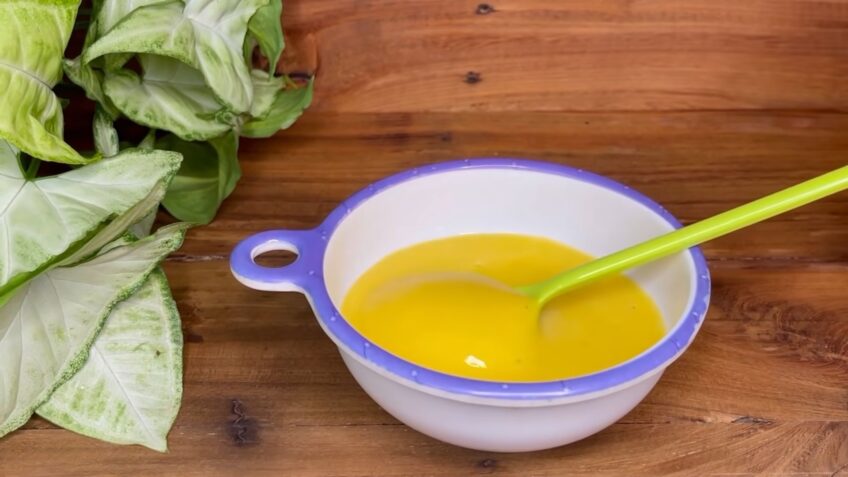
Processed food is often exposed to high temperatures which can destroy vitamins and minerals and reduce its nutritional value. Unlike store-bought food which has undergone such processing, homemade ingredients retain their nutrition.
With homemade recipes, you have the option to choose fresh ingredients which are packed full of flavor and nutrition ensuring your child is receiving the nutrition they need each mealtime. From fresh local produce to healthy fats such as avocados as coconut oil, making your own baby food allows you to select the ingredients you want and to create recipes that will deliver the most amount of nutritional benefit to your baby.
By creating your own recipes, you also have the option to incorporate herbs and spices into your baby’s meals to enhance their flavor and health benefits. For example, adding cinnamon to sweet potato puree can help regulate blood sugar levels and can also be used in other baby meals for its antioxidant benefits.
2. Enjoy Experimenting
Making your own gives you the freedom to experiment with different ingredients and modify your recipes based on your child’s preferences. If your baby prefers certain fruits or vegetables to others, you can create recipes based on those ingredients ensuring meal time is a more enjoyable experience for the both of you.
Homemade baby food also allows you to introduce your baby to a range of fruits and vegetables, and vary the texture of their food from purees and soft, mashed foods to finger foods. Introducing them to different foods and flavors early on can also help them to develop healthy eating habits which will serve them well into the future.
3. Easy on the Pocket
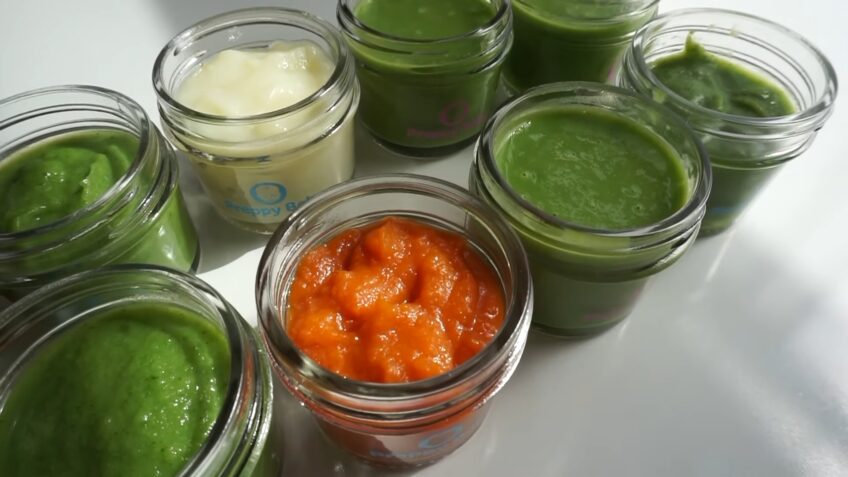
Buying from a store may offer convenience but the costs can quickly add up. Making your own food allows you to cut down on these costs. By including ingredients that are in season you can take advantage of fresh and abundantly available produce at a cheaper price.
You can also cook, puree or blend your baby food in bigger batches and freeze them for later. Making your own can offer significant savings, especially if you have more than one child or are on a tight budget.
4. Culinary Control
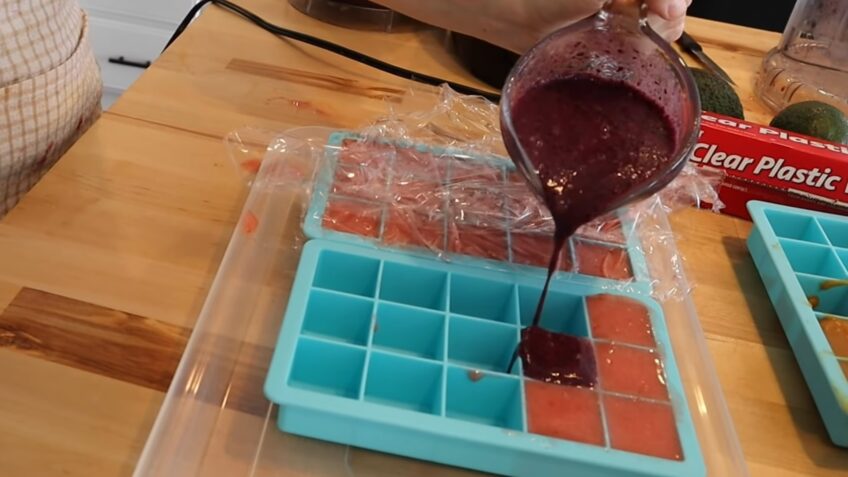
Homemade allows you to be creative and culinary control in the kitchen. This is particularly beneficial when it comes to allergies or food intolerances. Homemade allows you to select only those ingredients you know will be safe as well as nutritious for your child. You can also feed your baby food that is free from any harmful chemicals or pesticides by using organic produce or meat.
In addition, you can adjust the texture and consistency of the food based on your baby’s developmental stage and readiness for more advanced textures. As your baby grows and develops, homemade baby food allows you to modify their meals accordingly as well as introduce new flavors and textures, adapting to their changing needs. By choosing the ingredients you want you can ensure your little one receives the nutrition they need and enjoys each meal they are given.
5. Better Digestion
Store-bought is often cooked and processed, making it more difficult for babies to digest. Homemade food has not undergone such processing so the food retains more of its nutritional value, making it easier for your baby’s digestive system to break down and absorb nutrients.
As you can customize the ingredients to suit your baby’s digestive needs, you can also avoid foods that may upset their stomach or cause digestive problems such as gas or bloating. For example, adding a pinch of turmeric to a savory puree can help to aid digestion, soothing your baby’s upset stomach. Some simple foods that are easy to incorporate into your baby’s diet as well as gentle on their digestion include avocados, bananas, and pureed vegetables.
6. No More Fussy Eaters

Homemade food has the advantage of letting you decide what ingredients to add to your baby’s meals. By exposing your baby’s palette to different types of foods and experimenting with new flavors you also reduce the likelihood of them developing eating habits. By becoming familiar with different tastes and textures early on in life, your baby can also learn healthy eating habits and an appreciation of a wide array of ingredients.
7. Better for the Environment
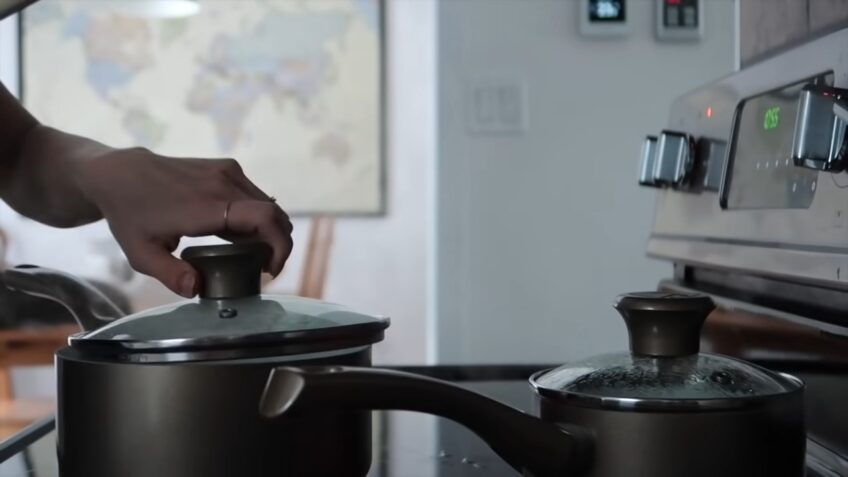
Almost 45% of the material landfilled in the United States is food and food packaging, according to figures from the United States Environmental Protection Agency (EPA). Making your own food reduces the burden on landfill sites as you move away from purchasing pre-packaged food and opt for reusable containers like plastic-free tubs and glass jars.
The use of locally-sourced and organic ingredients also enables you to do your bit for the environment. Shopping for ingredients locally or growing your own also eliminates the need to buy store-bought food that has been packaged and often transported over long distances, helping you to reduce your carbon footprint.
There are several benefits to homemade baby food ranging from added nutrition to environmental benefits. Whether you make baby food at home as an occasional alternative to store-bought options or choose to make the shift altogether there are many benefits that you and your baby can both enjoy.
FAQ
What are the nutritional benefits of homemade baby food?
Homemade baby food is often more nutritious than store-bought options because it hasn’t been exposed to high temperatures that can destroy vitamins and minerals. You can choose fresh ingredients packed with flavor and nutrition, ensuring your child gets the nutrients they need. You also have the option to incorporate herbs and spices to enhance flavor and health benefits.
How does making it support experimentation and variety?
When you make your own baby food, you have the freedom to experiment with different ingredients and modify recipes based on your child’s preferences. This allows you to introduce your baby to a range of fruits and vegetables and vary the texture of their food. Early exposure to different foods and flavors can help them develop healthy eating habits.
Is this food cost-effective?
Yes, making your own can be cost-effective. Store-bought baby food may offer convenience, but the costs can quickly add up. By making your own you can cut down on these costs, especially by using ingredients that are in season and cheaper. You can also make larger batches of food and freeze them for later use.
How does homemade baby food offer culinary control?
Making your own baby food allows you to have complete control over what goes into your baby’s meals. This is particularly beneficial if your child has allergies or food intolerances. You can select only those ingredients you know will be safe and nutritious for your child. You can also adjust the texture and consistency of the food based on your baby’s developmental stage.
Can it aid digestion?
Yes, homemade can aid digestion. Store-bought baby food is often cooked and processed, making it harder for babies to digest. Homemade food retains more of its nutritional value, making it easier for your baby’s digestive system to break down and absorb nutrients. You can also customize the ingredients to suit your baby’s digestive needs and avoid foods that may upset their stomach.
How can homemade food help with fussy eaters?
Homemade baby food allows you to expose your baby’s palate to different types of foods and experiment with new flavors, reducing the likelihood of them becoming fussy eaters. By introducing different tastes and textures early on in life, your baby can learn healthy eating habits and appreciate a wide array of ingredients.
Is homemade baby food better for the environment?
Yes, homemade can be better for the environment. Making your own baby food reduces the burden on landfill sites as you move away from purchasing pre-packaged food and opt for reusable containers. Using locally-sourced and organic ingredients also enables you to reduce your carbon footprint.
Final Words
In conclusion, the benefits of homemade baby food are manifold. It provides a nutritious, cost-effective, and environmentally friendly alternative to store-bought options. By preparing your own baby food, you have the opportunity to ensure your child is receiving the best nutrition possible, tailored to their specific needs and preferences.
This process allows for creativity and experimentation, introducing your child to a wide variety of flavors and textures. This early exposure can help shape healthy eating habits that will last a lifetime. Moreover, homemade baby food can be more easily digested by your baby, and you can adjust the ingredients to suit their digestive needs.
Also Read:
- Taste the World: The Crucial Role of Translation &…
- The Incredible Chia Seed Benefits That Everyone Is…
- Activated Charcoal for Food Poisoning: Benefits and…
- Learn New Food Recipes by Watching these Cooking…
- Major Side Effects OF Eating Too Many Blueberries -…
- Can You Freeze Miracle Whip - Avoid Food Poisoning

